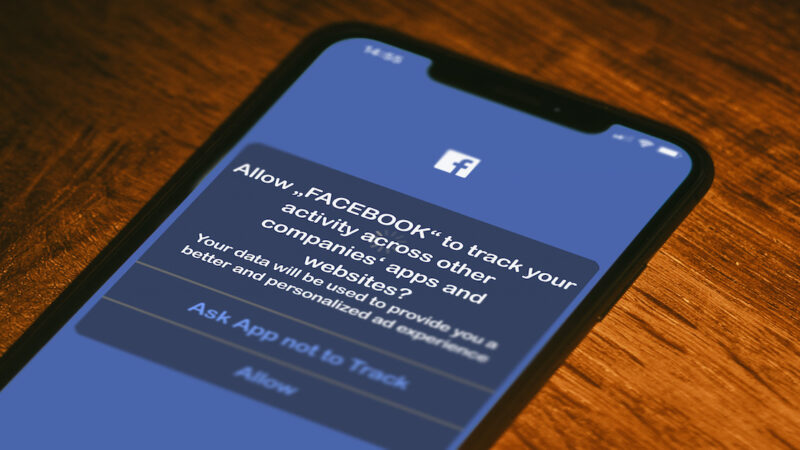Is this practice a lesser evil for the greater good or a true invasion of privacy?
Lately there has been a lot of talk in the news about Facebook and other big Social Media companies sharing your data with third parties. Although the data shared is often defended as “anonymous,” many people have understandably voiced concern, and some have even quit their social media accounts all together. The big question is whether shared anonymous third-party data is an invasion of privacy as Apple seems to believe, or if it provides a better experience for both consumers of Social Media and advertisers.
Ironically, like most trending Social Media outrage topics, the fact that most people’s public information is being shared with a mixed bag of marketers and companies trying to reach their audience is not new news. Your local cable company, cell phone provider, mortgage provider, bank, grocery store (rewards card) and pretty much any “free” service you have ever used has gathered information freely given to them by their customers. If you don’t like it you can always opt-out, but you may miss out on a timely coupon for something you actually want or see more cars like the one you want. It’s all about the data points.
Your data has been harvested long before everyone had way too much screen time during the Pandemic to worry about Facebook. Data from public property records, Census data and other public records have long been used for targeted advertising by newspapers and direct mail companies. When you signed up for your Rewards card from your local grocery store, gas station, or “free” credit check or all the surveys or contest entries where you provide your email, address or phone. This includes that time in the 90’s when you filled out two pages of a“why do they need to know this?” form you filled out -just to get the free Tupperware knockoff vs. the “Two Weeks Hawaii Vacation!” following an excruciating two-hour sales pitch.
What is anonymous third-party data?
The definition of third-party data is data provided by one company to another such as interests (Likes), age, location, recent purchases, political leaning, etc. Anonymous third-party data means that your name, phone number, address and personally identifiable information is not shared. To people who are concerned about their privacy (like my Mom), this is scary stuff.
This clarification of anonymous vs. private data is not often reported in the news stories about Social Media companies or digital marketing agencies accessing anonymous data to market more efficiently. Most of the businesses benefitting from this shared anonymous data across Social Media are small businesses like Swenson’s in Akron, Ohio, or your neighborhood dentist. What makes “anonymous” third-party data work better for both marketers and consumers is the fact that the marketer never receives your phone number, email, or address unless you provide it directly to them. When you signed up for your “Personal” Facebook account, maybe you didn’t read the fine print.
“The large print giveth and the small print taketh away.”
― Tom Waits, The Early Years: The Lyrics, 1971-1983
The fact is that when you signed up for Facebook or any other free service and didn’t read the fine print that declared that they could use your information, they have a right to sell what you willingly provided to the highest bidder. “Face it (no pun intended), Facebook may or may not be an altruistic non-profit like Wikipedia or Craigslist (before Craigslist started charging). However, they are in business to make money off of digital advertising, and the main asset they must sell is their audience (just like newspapers, since the 1700’s, have always had their subscribers’ home address). The main currency of marketing has always been consumer data.
Whether or not Mark Zuckerberg is trying to make the world a better place or destroy it, let’s just leave that to the conspiracy theorists and Social Media memes. He was just trying to meet more girls at Harvard when he started it -like any teenage geek. However, when it comes to providing more relevant marketing for consumers (meaning you see ads that you may be interested in), and helping small businesses connect more efficiently with their ideal customers he’s no dummy.
What does this mean for individual privacy concerns?
For most people, unless you are in the witness protection plan, paranoid or just want to be a ghost, it means little more than improving your experience by showing you more relevant ads that are related to your personal online searches or posts. “Wait, you mean Facebook is tracking my searches?! Well at least that’s where it ends” you think. Umm, yeah pretty much every pizza place you’ve ever ordered from can track where you are and their ad agency (if they’re pretty darn good with Google Analytics can figure out your age, gender, and if you’re “in-the-market” for pizza or leaning more towards Sushi lately.
So what’s the upside for a consumer for having their data shared “anonymously” with third-parties?
The upside is more relevant ads for consumers of Facebook, Instagram, or insert your favorite Social Media platform, OTT video direct from your favorite TV Network, or Cable TV, ads related to subjects your most interested in and more relevant results for searches for products, services etc.
What does the new privacy update for Apple mean for fellow Outstanding Ohio businesses trying to more efficiently market to their potential customers via Facebook, Instagram, LinkedIn or other Social Media platforms?
The purpose behind anonymous data sharing for digital advertising is that only your demographic profile, general location and interests are shared for ad targeting purposes. Your actual name, personal email and phone number is not shared (unless you’ve opted in by signing up for an offer, newsletter, or alerts). For most businesses, has meant more efficient spending of their marketing budgets. Even with the recent news from Apple prompting users with the option to opt out of app and website tracking, many people still enable apps to “use their location data while using the app” in order to use apps like CarPlay for navigation or to find a used car for sale within a certain radius. While they are using these apps users can still be profiled for advertising. Even if a significant portion of Apple device users opt out of tracking (yet to be seen), there are still numerous other effective ways to do more targeted digital ads such as display ads and videos on niche websites that fit an advertiser’s core customer base. Also specific interests, lifestyles, recent check-ins, likes or pages followed can help develop a profile to be efficiently targeted on Social Media. If you own a local Akron-area business and would like to find out what other digital marketing options are available or would like a review of your current digital marketing or Social Media strategy, get in touch with DigitalHipster, we love helping local business owners keep up with digital marketing trends and growing their businesses across all platforms from the Internet to TV.
Tip: If you don’t want to benefit from more targeted online pizza coupons, you can always disable all cookies when you’re on your favorite pizza provider’s website, but that sucks if you’re trying to navigate there.

